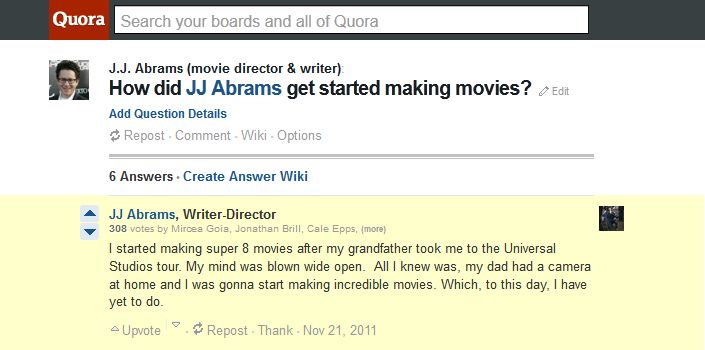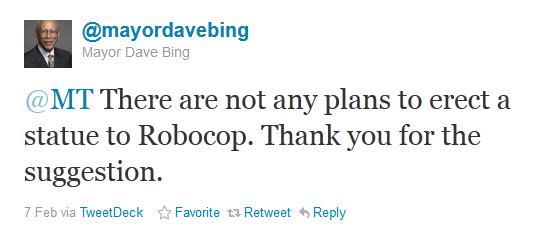Note: This article is not about verifying identities in social media; that’s way too boring. This post is about the sense of validation that motivates people to use social media more and more.
The need to be validated is what drives modern society. It falls within the top two sections of Maslow’s Hierarchy of needs (New Year’s Resolution: Stop relating every marketing concept to Maslow?). And this need translates over very nicely to social media and its users. The first word is the key one: social. Social networks are about interacting, but networking is also about creating new connections that did not previously exist. And therein lies the promise of social media for the everyday users- the ability to receive validation from another person, whether it’s the cute girl from Chemistry class Liking your status on Facebook, a customer service rep responding to your complaints on Yelp, a movie star responding to your Tweet/answering a question, striking up a casual conversation with the CEO of a tech startup you’re interested in working for. Whatever the case may be, the (potential) feedback loop is what drives many users to engage. I’m going to use this post to highlight a few social networks that are doing this right.
Why do people use Quora?
Quora markets itself as being THE place where anybody is able to receive expert answers to any question. In this sense, Quora mainly relies on the quality of responses to drive engagement. But sometimes this even lends itself to some surprises. Take the example below: in this thread, someone asked a general question about how JJ Abrams started his movie-making career… and JJ Abrams himself popped by to personally answer the question!

JJ Abrams was definitely the expert on the subject matter (click to enlarge)
Amazing that he would take the time out of his day to answer an anonymous person’s question just because he knew he would be the best source for an answer. It also shows that he cares for his fans and is willing to reward them for their fandom and devotion. Really awesome. No one can argue that that isn’t the single best answer for that question. (Full disclosure: I love Fringe!)
Why do people use Reddit?
In the same vein, Reddit has become the “it” social sharing site. It has completely eclipsed Digg, StumbleUpon, Delicio.us and all the others. It has done so by fostering a community where any and all questions can be asked and answered, with no apparent limits to genuine curiosity. And the community has grown so large (and full of educated students and professionals) that there’s almost always someone qualified to answer your questions, no matter how obscure (consider this thread about hair dryers.) The AskReddit threads are similar to Quora, but with a typically lower signal to noise ratio.
And occasionally on Reddit (actually at least a few times a month at this point), someone famous creates an account solely to answer Redditors’ questions. In recent memory, there’s been Louis CK, Jeopardy Champion Ken Jennings, Astrophysicist Neil deGrasse Tyson, Stephen T. Colbert, and countless others. During these days, a lucky few have their questions answered by someone they likely revere, or at least respect, for their body of work and also for allowing random Internet users to ask them almost anything. It’s a bi-directional relationship- the users that help build the community are rewarded with recognition from people who would otherwise likely never be able to interact with them. Now that’s powerful stuff.

Admittedly, sometimes not the most powerful stuff
Why do people use Twitter?
Twitter is arguably the most frictionless social media service there is. Anybody can create an account and there are no barriers to Tweeting something at anybody else, celebrities and other famous individuals included. I myself have had some fleeting conversations with music artists I adore, industry thought leaders, Google Webspam Team Overlord Matt Cutts, among others (#HumbleBrag). And that’s the kind of validation people are searching for when they first hear about Twitter, decide that it’s not too stupid, and then sign up and write their first Tweet directed at someone they don’t personally know. Twitter is the social media platform of aspiration.
You can even get a response to the most inane of requests, like having a RoboCop statue erected by the mayor of Detroit.
What does this all mean to brands and individuals active in the online or social media space? In short, technology has enabled more of us to communicate with each other and with strangers who had once only been available through very specific channels. Now that it’s socially acceptable to ask questions/make comments and expect answers/responses, doing so has become a routine part of our online lives. Whether you’re a musician on Facebook, a blogger with an active comments section, a customer service rep on Twitter, or whatever else, it will only work to your benefit to provide users with the best answers (barring any huge PR gaffes). You need some give and some take to complete the feedback loop.




